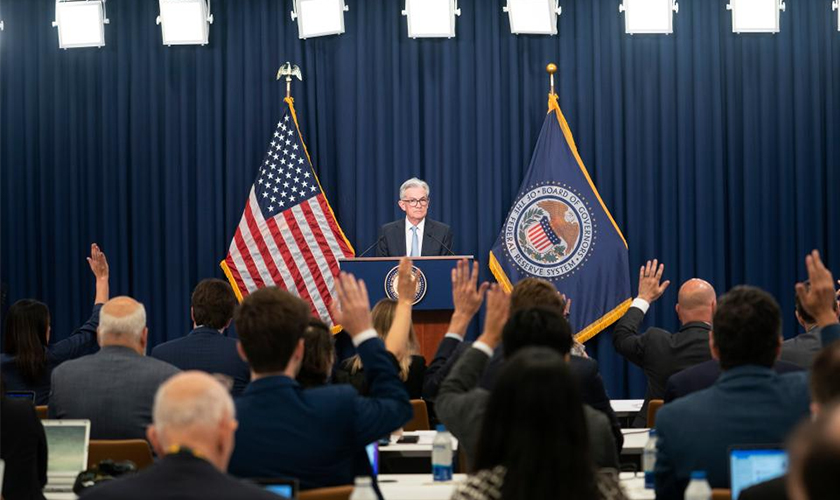U.S. Fed raises rates by three-quarter point amid inflation surprises

WASHINGTON, June 16: The U.S. Federal Reserve on Wednesday raised its benchmark interest rate by 75 basis points, marking the sharpest rate hike since 1994, as data released in recent days indicated inflation showed no clear sign of easing.
"Inflation remains elevated, reflecting supply and demand imbalances related to the pandemic, higher energy prices, and broader price pressures," the Fed said in a statement after a two-day policy meeting, adding that the Fed is "highly attentive to inflation risks."
The Federal Open Market Committee (FOMC), the Fed's policy-making body, decided to raise the target range for the federal funds rate to 1.5 to 1.75 percent and "anticipates that ongoing increases in the target range will be appropriate."
The statement showed that 10 committee members voted for the decision and one voted against it. Esther George, president of the Federal Reserve Bank of Kansas City, preferred a half-point rate hike.
The Fed's newly released quarterly economic projections showed that Fed officials' median projection of personal consumption expenditures (PCE) inflation is 5.2 percent by the end of this year, up from 4.3 percent in March projection.
The economic projections showed that median projection of PCE inflation would fall to 2.6 percent by the end of 2023, and then to 2.2 percent by the end of 2024.
Fed officials' median projection of unemployment rate, meanwhile, is 3.7 percent by the end of this year, slightly up from the current 3.6 percent. The median projection of unemployment rate would reach 3.9 percent by 2023 and 4.1 percent by 2024.
"If you're looking at getting that back down to almost a 2 percent inflation by 2024 and the unemployment rate is as low as 4.1 percent, I would call that as meeting that test (of a soft landing)," Fed Chair Jerome Powell said Wednesday afternoon at a press conference.
The economic projections showed that the median FOMC projection for year-end federal funds rate has jumped to 3.4 percent, much higher than the 1.9 percent projected in March.
"The committee's views are around a modestly restrictive stance which will be in the 3 - 3.5 percent range by the end of the year," Powell told reporters.
"If we see data going in a different direction it will be reflected in our policy. As you see today," he added.
The 75-basis-point rate hike on Wednesday marked a major shift from Powell's remarks in early May that 50-basis-point interest rate increases should be "on the table" at the next couple of meetings. Fed officials began their pre-meeting quiet period on June 4.
Desmond Lachman, senior fellow at the American Enterprise Institute and a former official at the International Monetary Fund, told Xinhua that the inflation number released last week was higher than the Fed expected, and the Fed is determined to "regain control over inflation."
The U.S. Labor Department reported Friday that consumer price index (CPI) skyrocketed 8.6 percent in May from a year earlier, marking the third straight month of inflation over 8 percent and hitting a new four-decade high. The figures, which exceeded consensus estimates, dashed hopes that inflation had peaked.
Powell said he expects a 50 or 75 basis point rate hike will be "most likely" at the next central bank policy meeting in July, adding that the committee will make decision based on incoming economic data.
"The committee is moving rates up expeditiously to more normal levels, and we came to the view that we'd like to do a little more front-end loading on that," he added.









Leave Comment